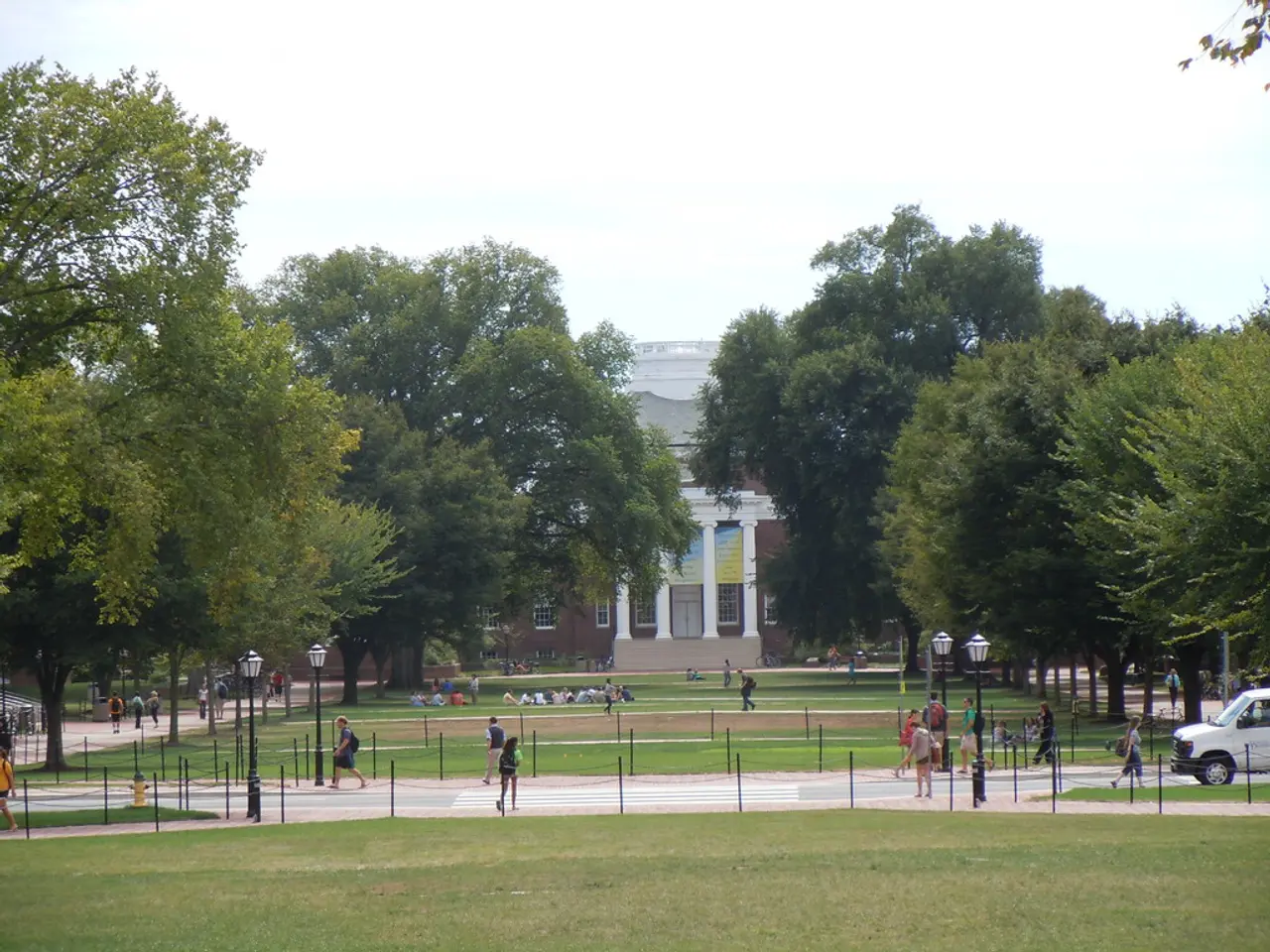Higher Education Faces Global Accountability: Universities Caught in a Crisis
The landscape of higher education is undergoing significant transformation, with governments worldwide implementing policy changes that are reshaping the academic landscape. These changes are primarily driven by heightened political oversight, ideological conflicts, and shifting priorities around issues like diversity, equity, inclusion, and curriculum content.
Universities and the Real World
Universities are being asked to develop deep connections with the world of practice and adapt to an exponentially changing environment. They must recommit to the values of critical thinking and intellectual pluralism to remain relevant and valuable in today's society.
Economic Challenges
However, the economy is proving less generous for university graduates, eroding the positive returns of attending university. The cost of university has risen markedly in many places, making the value-for-money equation of a university degree less attractive.
Policy Changes and Their Implications
Governments' policy shifts often stem from political pressures to limit discussions on certain topics, restrict diversity initiatives, and assert greater control over university governance. This results in legislative actions such as bans on diversity offices or restrictions on curricula that include contentious social concepts.
International Student Mobility
Political turmoil, restrictive policies, or diminished academic freedom can create an unwelcoming environment for international students, potentially reducing their enrollment and mobility. Increased government scrutiny and politicization may discourage prospective students from studying in certain countries or institutions.
University Budgets
Government interference often accompanies funding cuts, changes to research grants, or increased financial oversight. For example, reductions in federal research funding and cuts to need-based grants negatively impact universities’ financial health. Additionally, universities may face pivoting funding priorities that undermine support for diversity initiatives or certain academic programs.
Academic Institutions' Societal Contributions
Eroding academic freedom and autonomy risks stifling open inquiry, innovation, and critical scholarship. Universities may struggle to engage with contentious or emerging social issues meaningfully, undermining their role as centers for independent thought and societal progress. Political interference can also strain faculty morale and academic standards, hindering universities' ability to fulfill their educational and research missions effectively.
In sum, governments’ policy changes in higher education reflect political aims to control university governance and content, but they challenge traditional academic freedoms, destabilize finances, impede international student flows, and may weaken universities' vital societal roles.
The Way Forward
Protecting universities means renewing the public's understanding of their purpose and worth in a moment of disruption. Universities must speak more clearly and act more decisively in the face of high regulatory and political risk. They must do a better job of communicating the value they bring to students and societies where they operate.
Universities should not become political actors but should understand they are being judged on their merits and be willing to delineate their value at every opportunity. They must remain steadfast in their commitment to academic freedom, intellectual pluralism, and the pursuit of knowledge, even in the face of adversity.
Many other countries are altering their university policies, with a clear emerging trend being the introduction of barriers to international student mobility. It is essential for universities to adapt and respond to these changes, ensuring they maintain their global competitiveness and continue to serve as engines of innovation, social mobility, and cultural exchange.
[1] K. Struyk, "The State of Higher Education in the United States," The Brookings Institution, 2023. [2] M. Nussbaum, "The Future of Universities: An Essay on the Capacity to Change," The University of Chicago Press, 2024. [3] E. D. Hirsch Jr., "The Demise of the University: Academic Politics and the Responsibility of the Professoriate," Vanderbilt University Press, 2025. [4] A. K. Reich, "The End of College: Creating the Future of Learning and the University of Everywhere," TED Books, 2026. [5] D. L. Washburn, "The University in Peril: A Call to Action," Harvard University Press, 2027.
Universities need to prioritize education-and-self-development by developing deep connections with the world of practice and adapting to an exponentially changing environment, while remaining committed to the values of critical thinking and intellectual pluralism. This will help them remain relevant and valuable in today's society, where governments worldwide implement policy changes that challenge traditional academic freedoms, destabilize finances, and may weaken universities' crucial societal roles.
Protecting universities' educational-and-self-development mission requires a clear and decisive stance in the face of high regulatory and political risk. Universities must communicate their value to students and societies more effectively, ensuring they maintain their global competitiveness, and continue to serve as engines of innovation, social mobility, and cultural exchange, despite the emerging trend of barriers to international student mobility and the ongoing transformation of the higher education landscape.




